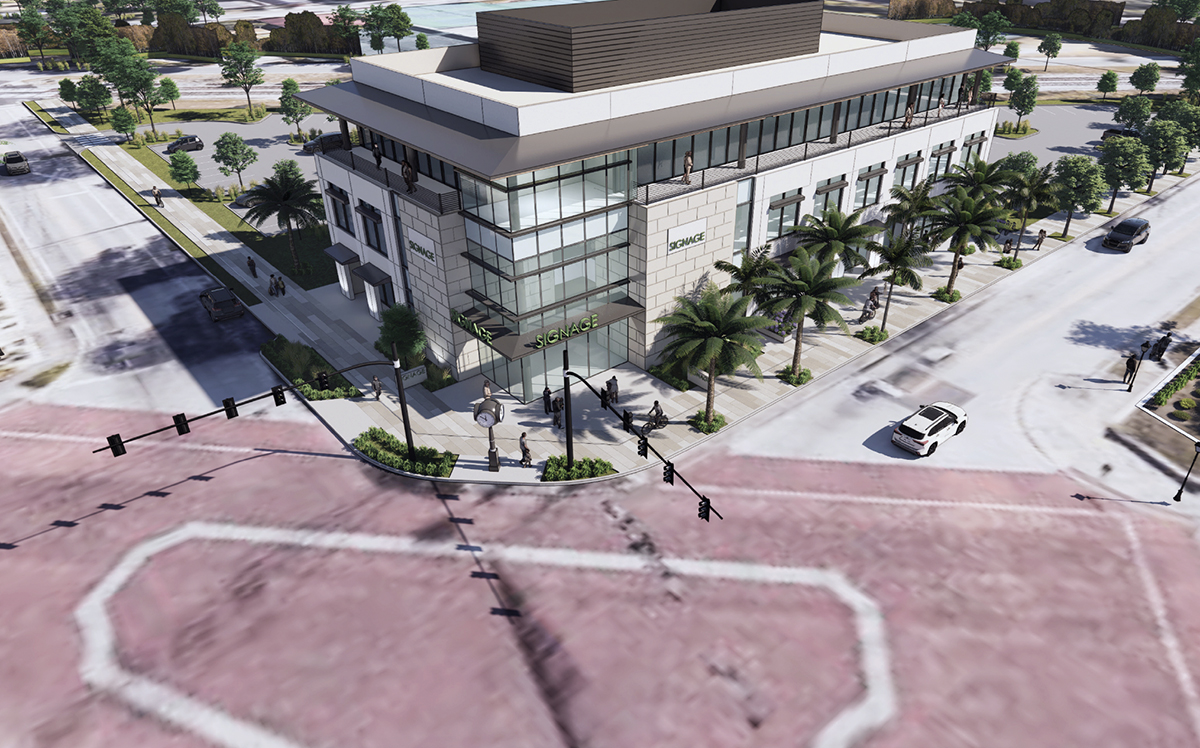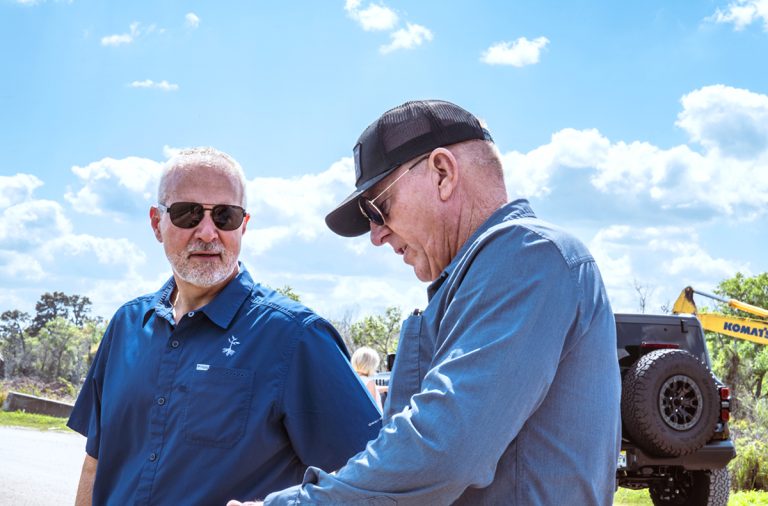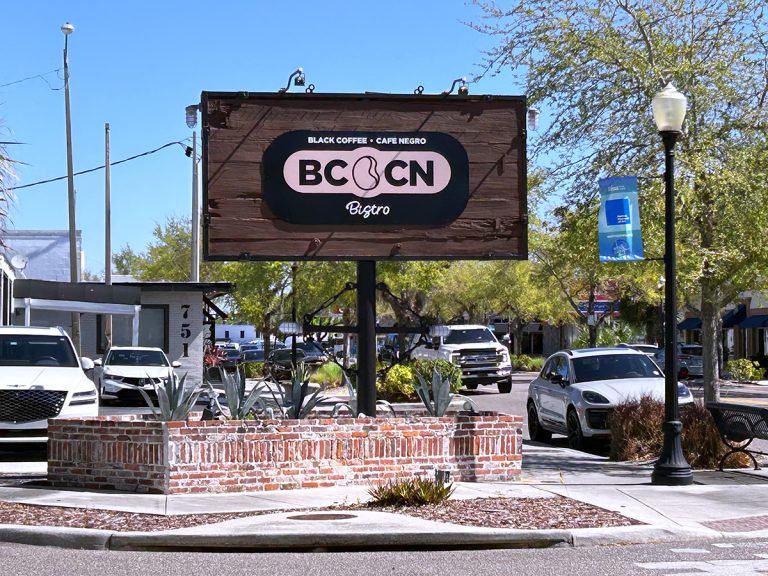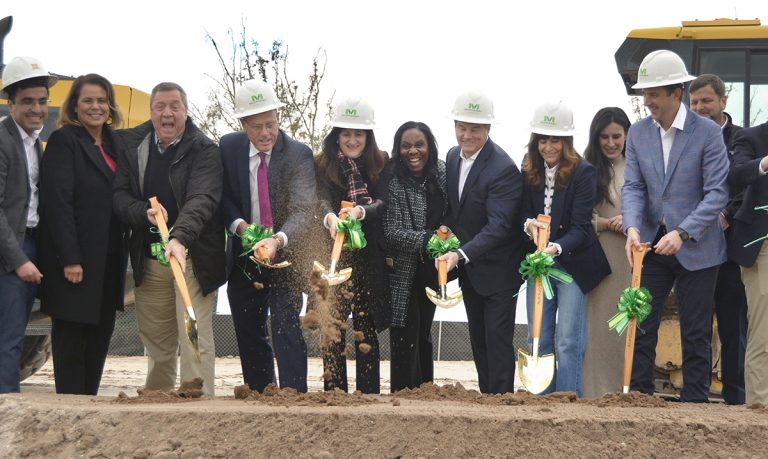Planning and Zoning Board members, during their February 6 meeting, unanimously voted to recommend McCraney Property Company’s conditional use request for a three-story, 29,500-square-foot office building, located at 1100 N. Orange Ave., after a revised site plan addressed right of way and greenspace allowances that would have sent the proposal back to the drawing board.
Planning and Zoning Director Allison McGillis stated that, earlier in the day, staff had been presented with a revision to the original site plan. However, representatives from McCraney and HuntonBrady Architects elected to present the original plan to follow a code provision, which pushes Board discussions of any drastic proposal changes to a subsequent meeting.
City staff had initially recommended tabling the plan due to the infringement of a deed restriction prohibiting vertical additions and paved areas on an intended greenspace at the southern end of the 1.88-acre property. The building’s original placement also did not allow sufficient setbacks to accommodate a future roundabout at the intersection of Denning Drive and Minnesota Avenue, which is part of the city’s Transportation Master Plan.
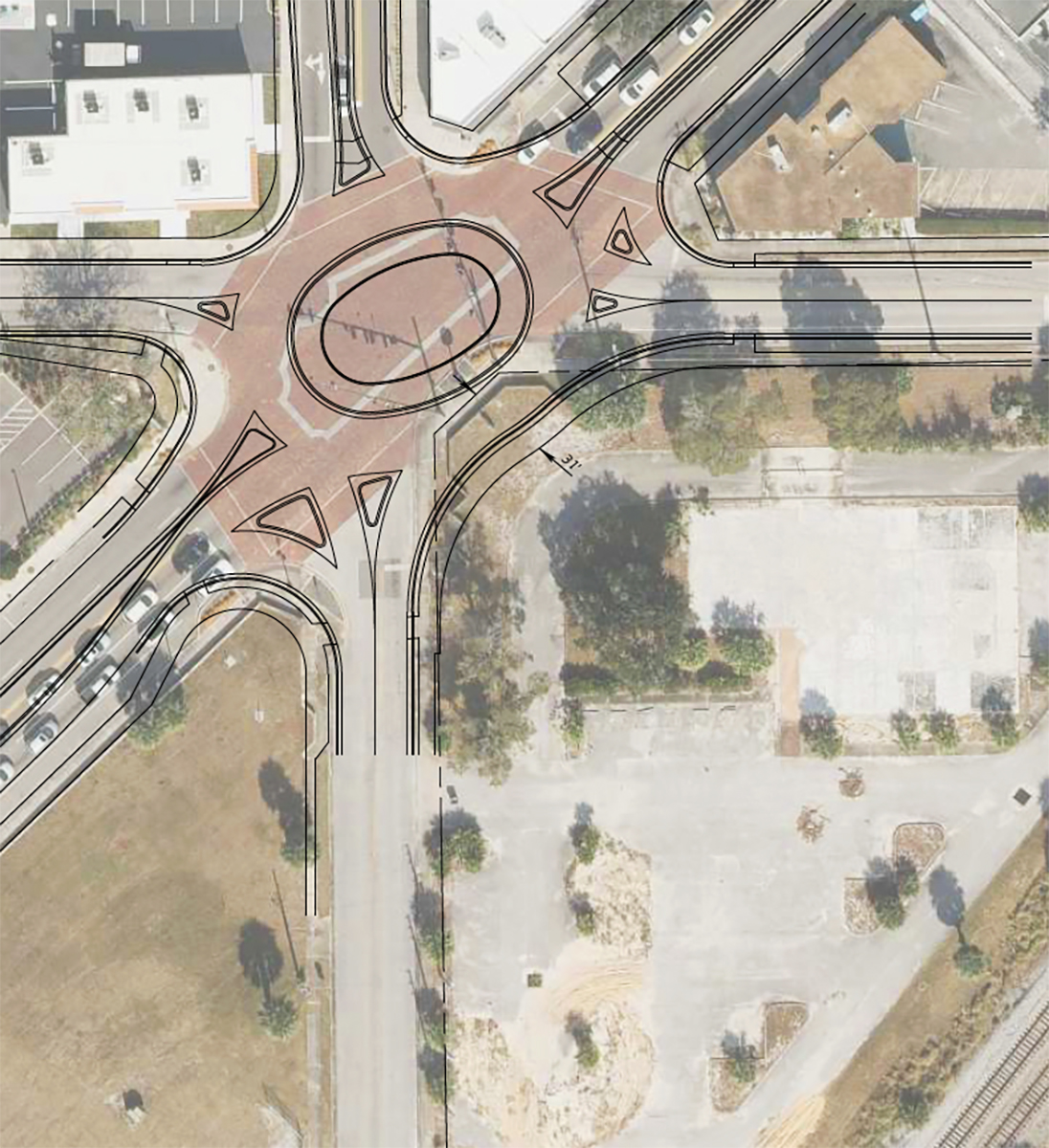
McCraney also requested variances to the architectural requirements of the Orange Avenue Overlay that include:
- The waiver of a 10-foot setback requirement above the second floor to accommodate a glass feature that extends the length of the building.
- Allowance for an overhang that encroaches 7.5 feet beyond the allowed 3.5 feet into the required setback from the right of way.
- Waiving required articulation of building elements and transition of materials at 30-foot intervals to break up the facade design.
- An additional three feet added to the 53-foot screen wall height allowance for hiding HVAC and mechanical equipment from the right of way.
The building, which will only house office space, also violates an Orange Avenue Overlay requirement that new development include mixed-use space for retail and restaurant use. McCraney Property Company CEO Steven McCraney addressed the board with regard to an exception, citing the need for Class A office space in the Winter Park area and the number of high-paying jobs that office tenants would bring to the area. He also noted conversations with business owners who expressed that “they don’t want additional restaurants that will take up more parking and detract from their businesses.”
The five audience members who spoke during public comments were each in favor of the proposal. Representatives from Winter Park-based Harbert Realty Services echoed McCraney’s statements about the city’s need for office space. Fred Thimm, owner of Reel Fish Coastal Kitchen and Bar, located just a block away from the proposed building, spoke against the idea of adding additional restaurants to an already saturated market and looked forward to the additional clientele that an office building would bring. “It’s a short walk from the office building to many good restaurants and bars and salons and bakeries,” he said. “I think we should allow the project to proceed and bring great jobs to the area.”
The Board agreed to allow attorney Becky Wilson, speaking on behalf of McCraney, to summarize details of the new site plan concessions with the understanding that the matter could still be tabled. Wilson cited new setbacks that push the building 31.2 feet from its original placement along Minnesota Avenue, creating a total setback of 46.2 feet from the right of way. From Denning Drive, the building will move an additional 11.2 feet for a total setback of 32 feet. The new site plan also allows for additional greenspace areas around the building as a concession for paving the space at the southern end.
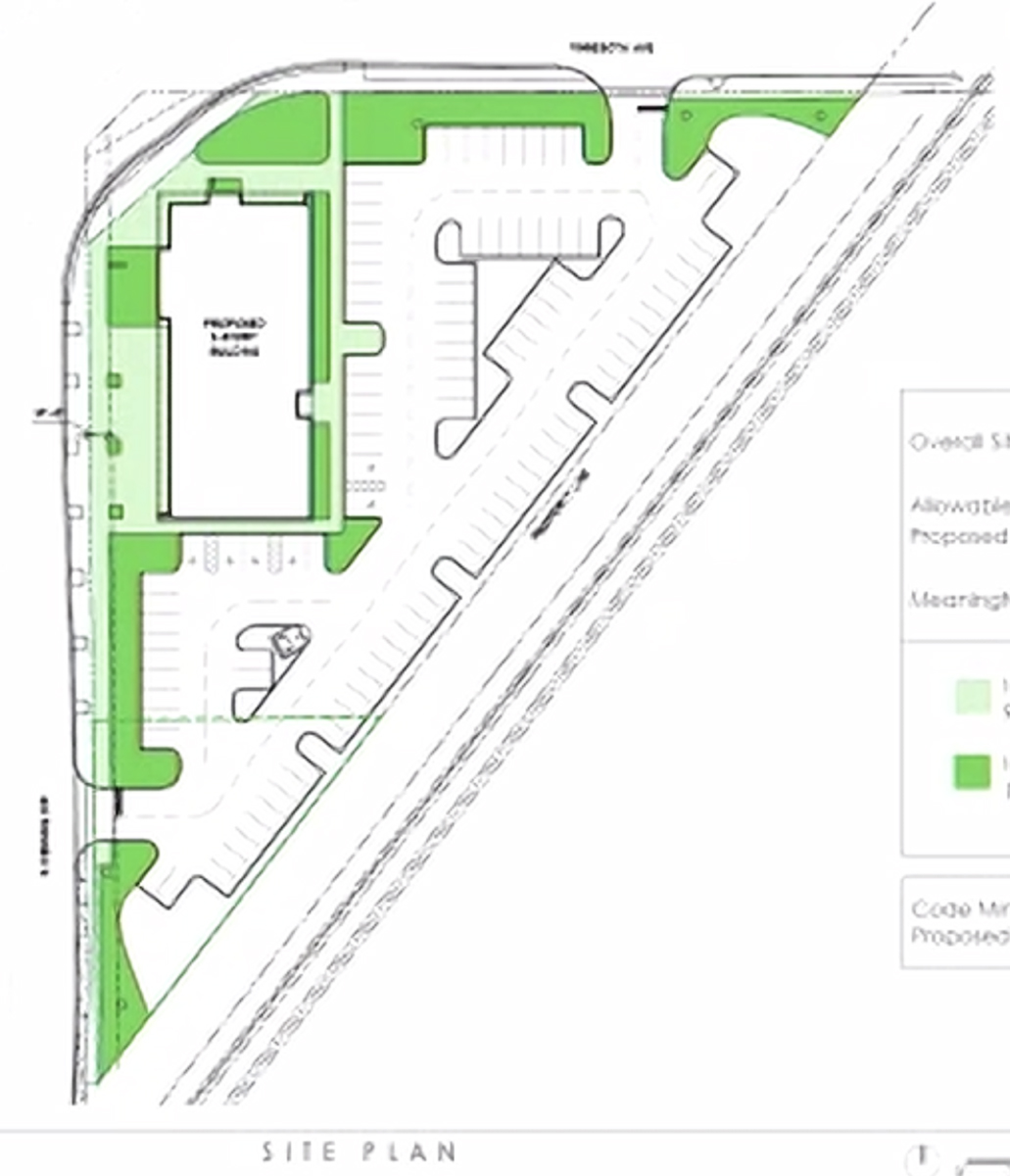
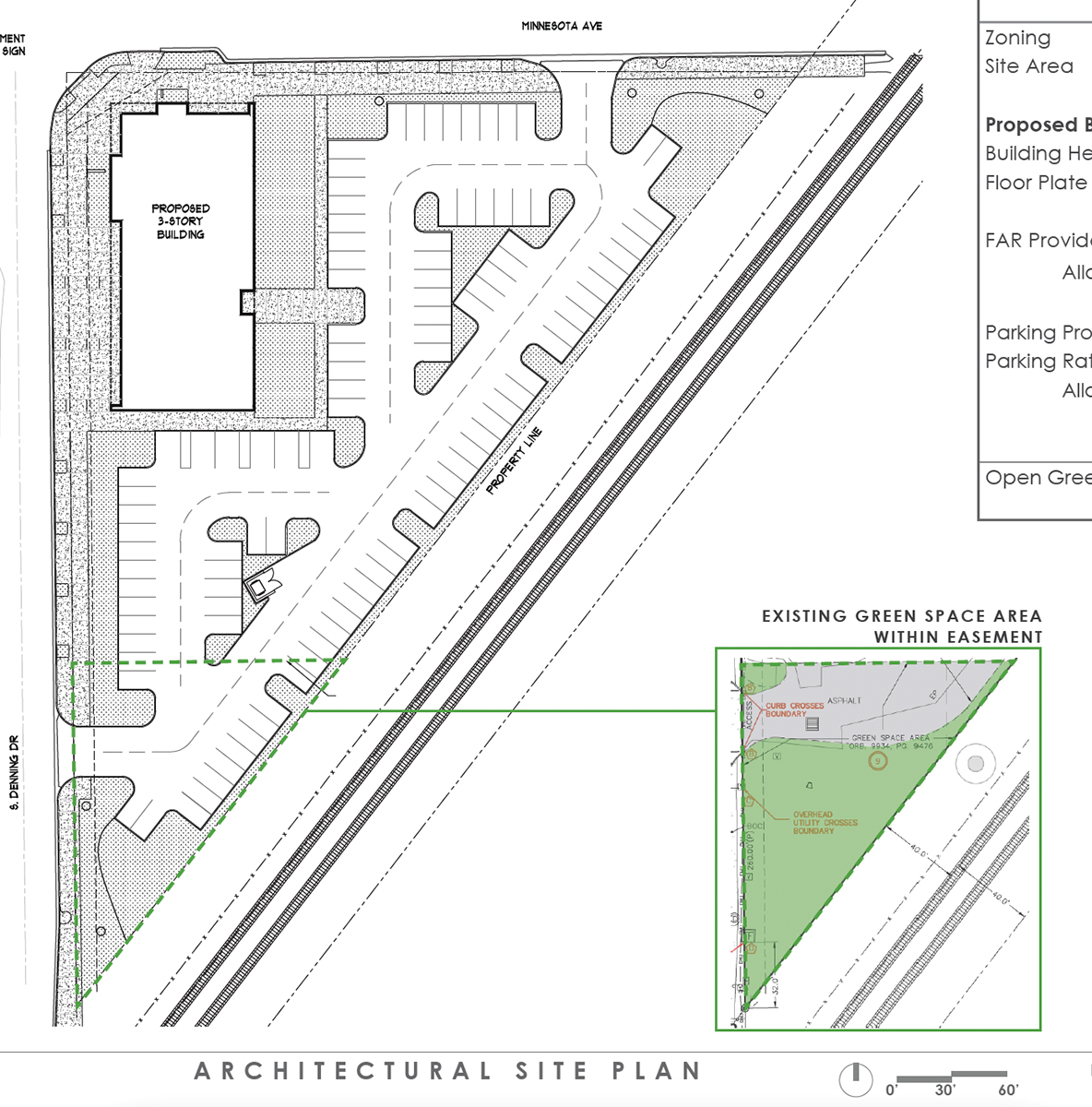
The setback change not only yields the necessary right of way for the roundabout, but also negates the first two architectural variance requests as the requirements only apply to a building that is within the minimum distance from the right of way.
McGillis and city attorney Dan Langley concluded that the new setbacks and greenspace allowances did not constitute a drastic change, since the building design and parking allowances are not impacted. But Board members Jim Fitch and Warren Lindsey proposed tabling the issue from a desire to further review the revisions.
“I’m not prepared to vote for or against it at this stage,” said Lindsey. “I think I would need to look at it more in light of the concessions that were made.” Meanwhile, Fitch took issue with arrangement of the new greenspace areas. “It just does not meet my idea of what greenspace should be.”
“We always look for partnerships and compromise when it comes to large projects,” said Board Chair David Bornstein. “The city, at this time, is not prepared to put in the roundabout, but preserving the opportunity to put in the roundabout I think is very important.”
The motion to table was voted down 3-2 with dissenting votes from Bornstein, Vashon Sarkisian, and Vice Chair Michael Spencer. Fitch and Lindsey then voted with their peers to recommend approval to City Commission with conditions for the roundabout right of way, new greenspaces, the substitution of oak tree landscaping for proposed palm trees, and the preservation of existing oak trees in the parking lot area. Allowances for the mixed-use variance and the remaining architectural variances were also recommended. Commissioners will have the final say on the proposal during their February 14 meeting.
